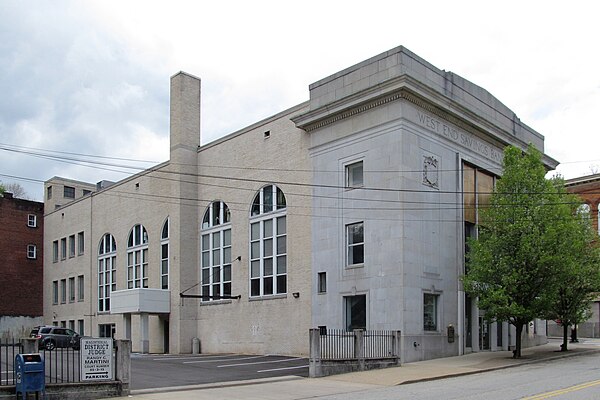
In classical times, worshipers deposited their money in temples, leaving it under the protection of the god. In neoclassical times, banks were built in the form of classical temples, but the only god was money itself.


In classical times, worshipers deposited their money in temples, leaving it under the protection of the god. In neoclassical times, banks were built in the form of classical temples, but the only god was money itself.


Few Pittsburghers from between the rivers ever find their way into the West End, but there are some minor architectural treasures to be seen there. This interesting terra-cotta front faces Main Street at the corner of Wabash Street.

This ancient building in the West End ought to be one of our top preservation priorities, but it is a peculiarity of Pittsburgh’s preservation movement that often the oldest and most historic structures are ignored. There was a campaign to raise funds for its restoration, but the site has vanished from the Web.
The most probable date for this old tavern is the 1780s, but there was a bit of a stir some years back when an old date stone was found from 1758, which would have made it older than the Fort Pitt Blockhouse. Old Pa Pitt has not seen the stone; the consensus seems to be that it was misread, but there are still locals who argue for the earlier date.


No one has to ask when this distinguished Victorian commercial building was constructed. There was a brief time about fifteen years ago when the West End looked like the next trendy artsy neighborhood—for example, you can just barely make out that this building briefly housed a Steinway piano dealer. It seems that the neighborhood was too far out of the way for the arts community to take firm roots. The neighborhood is still pleasant, but much of the business district is deserted.



Bird Park, a stream-valley park in Mount Lebanon, is a good place to look for spring flowers, and a fine place to take a little healthy outdoor exercise.




…as someone remembered while walking the Trillium Trail in Fox Chapel. But it seems that someone forgot that it might still be useful in the rest of the world.